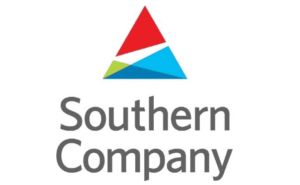
A third-party liability claim for a work accident involves anyone other than the employer responsible for the incident and any associated injuries.
If you got hurt at work, you could have grounds for this type of claim. To find out, meet with an Atlanta workers’ compensation lawyer to assess your legal options in depth.
Differences Between Third-Party Liability and Workers’ Compensation Claims
In a third-party liability case for a work accident, you seek damages from someone other than your employer. Third parties can include a property owner who ignores workplace conditions or a contractor who does something that contributes to a workplace accident. If a third party is responsible for an on-the-job accident and injury, you could sue them for damages.
Alternatively, with workers’ comp, you pursue benefits based on a workplace accident and injury through the government. There are steps you can take to file a workers’ compensation claim. If your claim is approved, you could receive compensation for your medical bills, lost income, and other quantifiable damages.
With third-party and workers’ comp claims, the damages you can recover vary. In a third-party claim, you can ask for economic and non-economic damages. Comparatively, in a workers’ compensation claim, you may not recover damages for pain and suffering and similar losses.
Get the strong arm
Filing a Third-Party Liability Claim Based on a Work Accident
There are no restrictions on who can file a third-party liability claim relating to a work accident. If you are considering a claim, consult with an attorney who has helped clients achieve outstanding results in third-party liability cases.
They will consider many factors as they help you determine how to get damages from any at-fault parties, including:
When Your Accident Happened
Generally, you have two years from the date you suffer an injury at work to seek compensation from a liable party.
Your lawyer can explain the statute of limitations for submitting a claim and how it relates to your case. If you wait too long from the date of your work accident to ask for damages, you could be solely responsible for any associated losses.
The Severity of Your Injury
How badly you were hurt impacts how much you should seek in damages. For instance, your workplace accident could cause a permanent disability.
You may be unable to return to your job and, as such, may want to pursue compensation for your current and future medical expenses, lost wages, and loss of enjoyment.
Burden of Proof
It is your responsibility to prove you were injured at work due to someone else’s negligence. Your attorney can help you gather evidence to validate the burden of proof.
They may use medical records, pay stubs, witness statements, and other evidence to show a judge or jury that you deserve damages.
When it comes to third-party liability claims for work accidents, have the team at John Foy & Associates help you. In addition to the fact that we have received many positive client testimonials, our team will give your work accident and injury case our undivided attention. Contact us for more information.
Who Is Liable in a Third-Party Work Accident Claim
Every workplace accident is different, and liability depends on who was involved. One or more parties may be responsible for your work accident. Parties you could hold accountable for your on-the-job accident and injuries include:
- Contractor
- Customer
- Equipment manufacturer
- Government entity
- Motorist
- Property owner
To determine who is at fault, share details about your workplace accident with a lawyer. From here, your attorney can examine the facts surrounding the incident and identify any liable parties. In some cases, your lawyer may advise you to file both a third-party claim and request workers’ comp benefits.
Submitting Third-Party and Workers’ Compensation Requests for a Work Accident
Just because you submit a third-party liability claim based on a workplace incident does not prevent you from seeking workers’ comp benefits. You may be eligible for workers’ compensation through your employer. Meanwhile, you may get 100% of the value of your lost income and other damages via a third-party claim.
If you are considering either or both claim options, get legal help. A lawyer considers the short- and long-term ramifications of your work accident and injury. They can calculate your damages and determine the best course of action to help you maximize your damages.
There are times when settlements are negotiated for work accident claims. With workers’ compensation, your employer’s insurance company could propose a settlement covering your losses. In a third-party claim, an at-fault party could offer a settlement, which could provide you with compensation in less time than what would be required if you go to trial.
Suing an Employer Through a Third-Party Claim for a Work Accident
If you accept workers’ compensation benefits, you may be ineligible to sue your employer based on an on-the-job accident and injury. Your lawyer can discuss Georgia’s workers’ comp system. They can provide insights into how workers’ compensation payments work in Georgia and similar topics.
According to workers’ compensation law FAQs from the State Board of Workers’ Compensation, you have up to one year from the date you get injured at work to file a claim for benefits. First, report your accident and injury to your employer and submit the required paperwork. Next, receive medical attention from an authorized physician and fill out a WC-14 Form.
Ideally, your employer will approve your workers’ compensation request promptly. If your accident and injury are the result of a third party’s actions, you can still pursue damages from them. Do so by having a lawyer file a third-party liability claim for you.
Work With a Lawyer Who Understands Third-Party Liability and Workers’ Compensation Claims
For over 25 years, the team at John Foy & Associates has helped our clients get compensation in personal injury claims and lawsuits.
If you need help with a third-party liability, workers’ comp, or both, we are here to assist. Request a free case consultation with us.
404-400-4000 or complete a Free Case Evaluation form






